Ananda Sukarlan Gives Free Music Lessons to Underprivileged Children
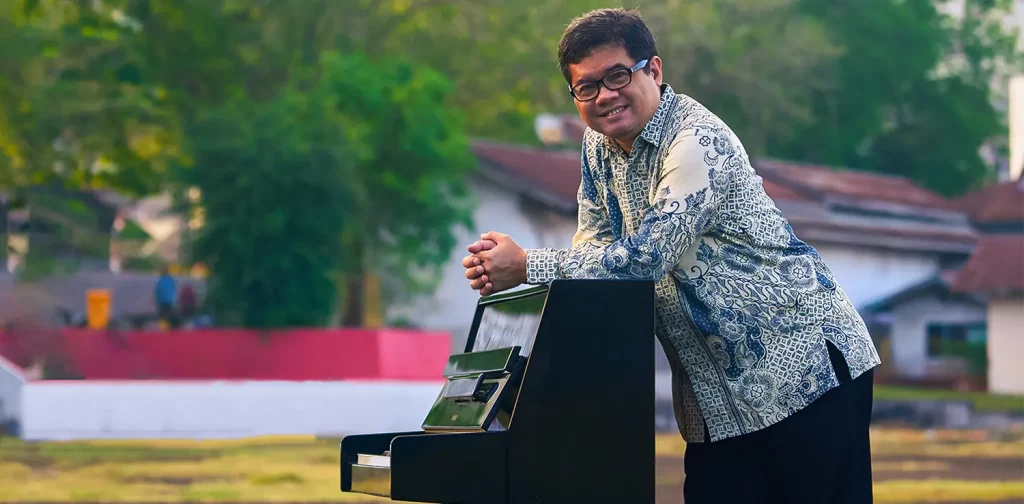
Ananda Sukarlan | Photo: Ananda Sukarlan’s file.
Every child has a right to education and development. Quality and balanced education is a crucial asset that determines their future life and welfare. Unfortunately, this right remains unfulfilled for many Indonesian children even after the government’s 12-Year Compulsory Education Program.
In the eyes of Ananda Sukarlan, a world-class pianist and composer, Indonesia’s education issues are quite complex. Ananda thinks that besides the economic factor as a primary hindrance, the education system and teaching methods are not inclusive. Another serious problem is that the education system doesn’t support creativity and talent development in children well enough.
Giving Free Music Lessons
Those issues drove Ananda to give free music lessons to underprivileged children from various backgrounds and conditions. He then established Yayasan Musik Sastra Indonesia (YMSI, =Indonesian Music Literature Foundation) with his friends, Chendra Panatan, Dedi Panigoro, and Pia Alisjahbana. Under YMSI, he has taught hundreds of children through the Children in Harmony program. He teaches them to play various musical instruments at different locations, like the Ananda Sukarlan Center for Music and Dance in North Cipete, South Jakarta.
“I think all kids must receive free art lessons, be it music, painting, dancing, and others. From what I’ve seen, the education system in Indonesia is too focused on left-brain logic. It’s dangerous because it can make their thought process unbalanced. Kids need to think creatively, and they can learn from art where all elements are covered, not limited by right-and-wrong or black-and-white,” Ananda said.
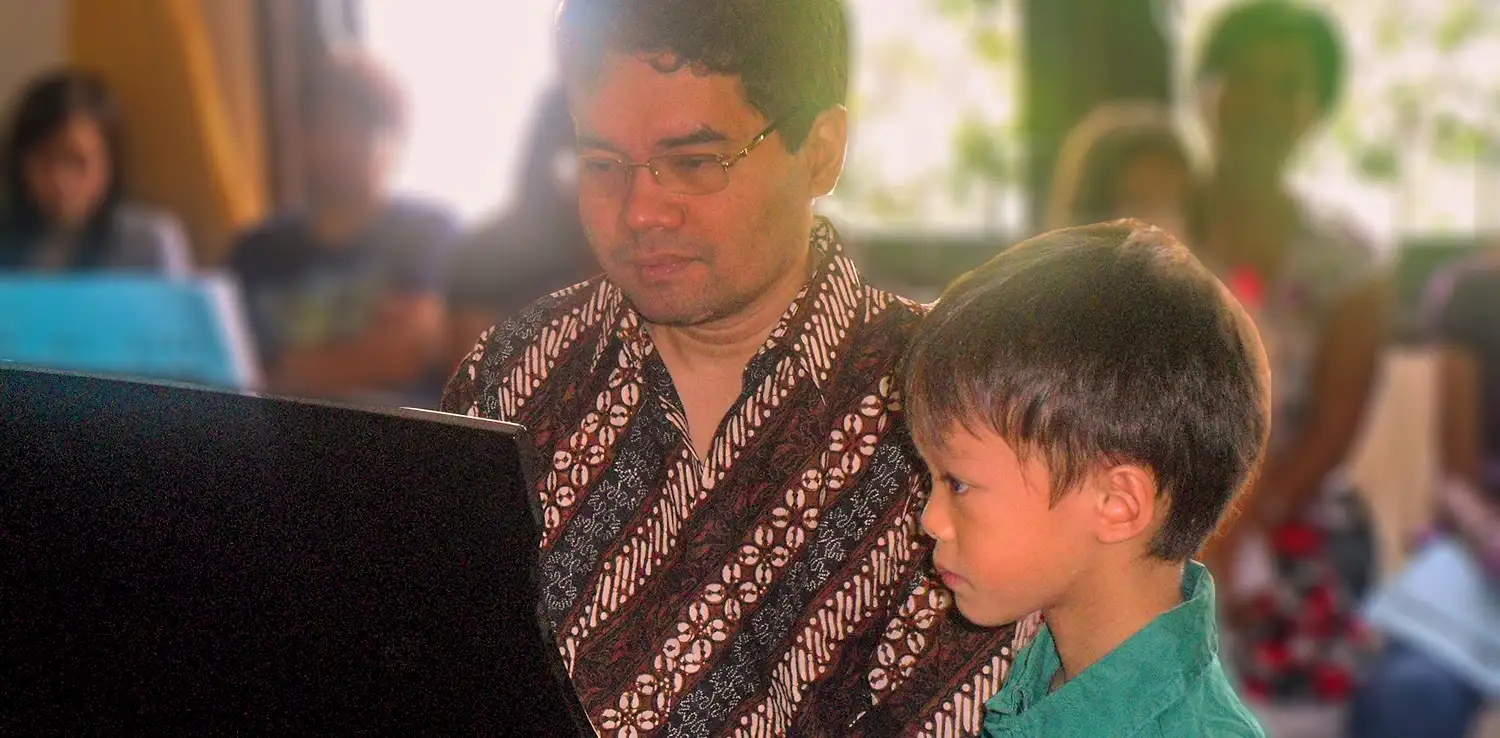
Ananda’s reason for creating YMSI was tied to his childhood memory of growing up in a low-income family. Coming out of this experience, the man born in Jakarta on June 10, 1968, doesn’t want there to be kids whose development cannot be adequately facilitated.
“My own childhood inspired me. Back then, my parents were poor. I studied music at university with a scholarship from the Dutch government. It made me think, ‘Children need access to music education.’ Giving music lessons doesn’t mean we want these kids to be musicians. Music education is important in activating their brain cells and making them more sensitive and disciplined,” said Ananda.
Ananda, the musician included in the book “The 2000 Outstanding Musicians of the 20th Century”, doesn’t only teach children how to play music and lets them go home when class is over. He often lends his instruments to them so they can practice more freely at home or anywhere else.
Ananda shared, “Among them, there are kids whose parents are meatball sellers, bajaj drivers, waiters. They usually have low self-esteem. If they can play one musical instrument, it can lift their pride and confidence. Confidence is vital in child development.”
When teaching music to the kids, the Koninklijk Conservatorium Den Haag-graduate pianist also slips in some character, history, and Indonesian culture education. According to Ananda, those elements are all crucial in art and culture development efforts. For instance, Ananda directs children to work with other musicians in an orchestra to teach them about diversity.
“This way, children are used to differences,” said Ananda.
Writing Rhapsodies for Youth with Disabilities
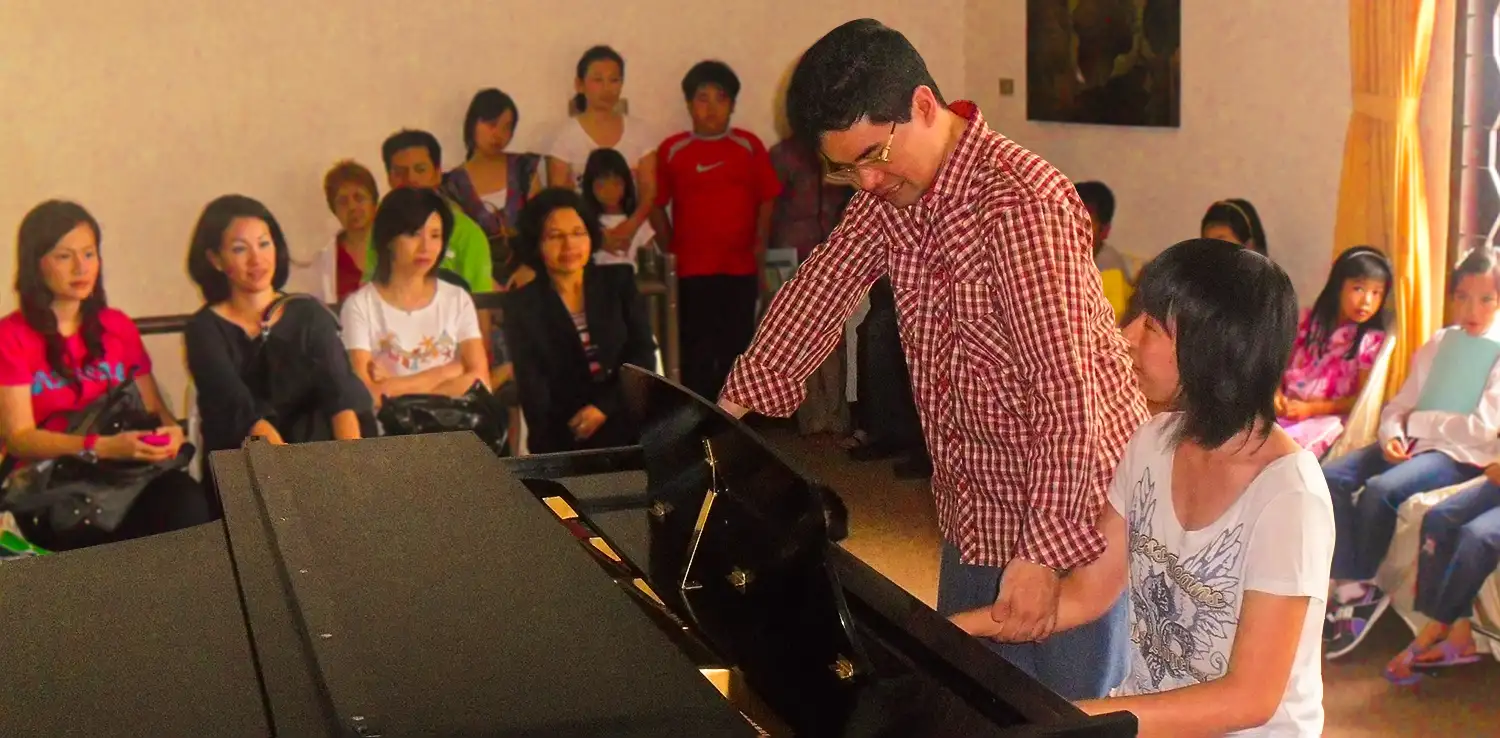
Ananda also pays special attention to equality and diversity issues. He uses every opportunity to speak up about these topics, including when he was the artistic director of the G20 Orchestra in September 2022.
“Music is a universal language. It unites differences. Music functions not only as entertainment but also documentation. It is evident in the program how music can become a form of diplomacy and communication, not just between nations but also between individuals,” said the man who lives in Jakarta, Indonesia, and Cantabria, Spain.
Ananda Sukarlan is known for his magnum opus, “Rapsodia Nusantara”, reaching No. 40 as of August 2023. Ananda develops Rapsodia Nusantara based on songs from all provinces across Indonesia. More than art to entertain, Rapsodia Nusantara is his way to advocate and support the rights of various marginalized groups, including people with disabilities.
Ananda himself was diagnosed with Asperger’s Syndrome. Now, he has composed over 80 pieces for people with various physical disabilities. The pieces have varying levels of complexity and difficulty. For example, Rhapsody No. 15 and No. 39 are specifically to be played using only the left hand.
He said, “I do work with kids with disabilities. There are kids who play the piano with only several fingers or one hand. I thought that if they grow up to become pianists, they’ll need pieces they can play at their grand concerts.”
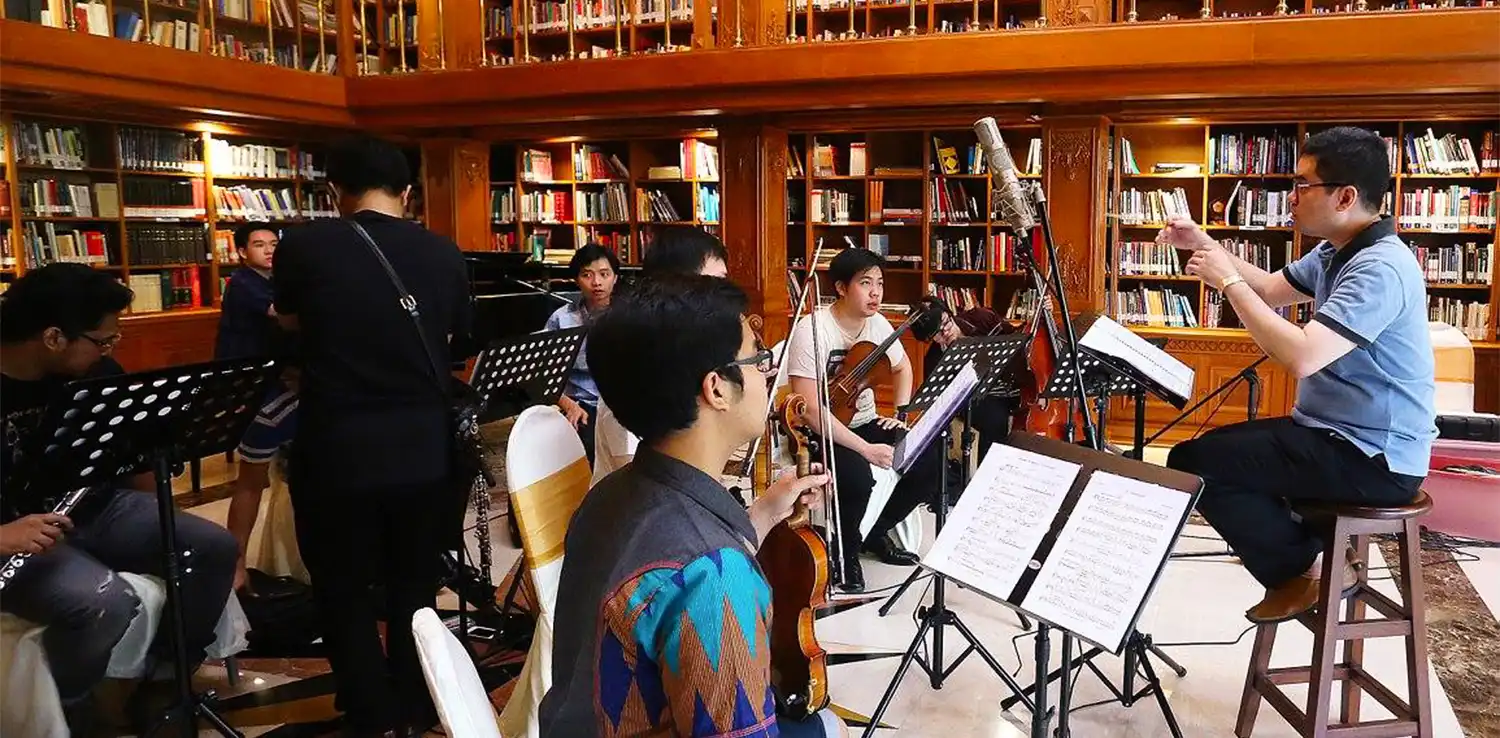
“Until now, Rhapsody No. 15 and No. 39 have only been played by me because they’re very difficult. The left-hand technique is not just playing with five fingers but still playing with high quality. So, for example, when people hear it with their eyes closed, they won’t tolerate subpar sound just because the musician plays with only one hand. The sound has to be good for the piece to be worth hearing,” said the pianist, who has composed hundreds of musical pieces and received international awards.
In Spain, Ananda works with Música Abierta Foundation to develop a music learning app for autistic children and children with disabilities.
“I teach music teachers and give them insight on autism and Asperger’s Syndrome—I have it. So, beyond teaching music, they must know how to connect and communicate with autistic kids. There’s a common misperception that you need to coddle autistic kids. No. Autistic kids must learn to understand the ‘normal’ outside world just as the world must try to understand them,” said Ananda.
Ananda Sukarlan on Adapting Culture
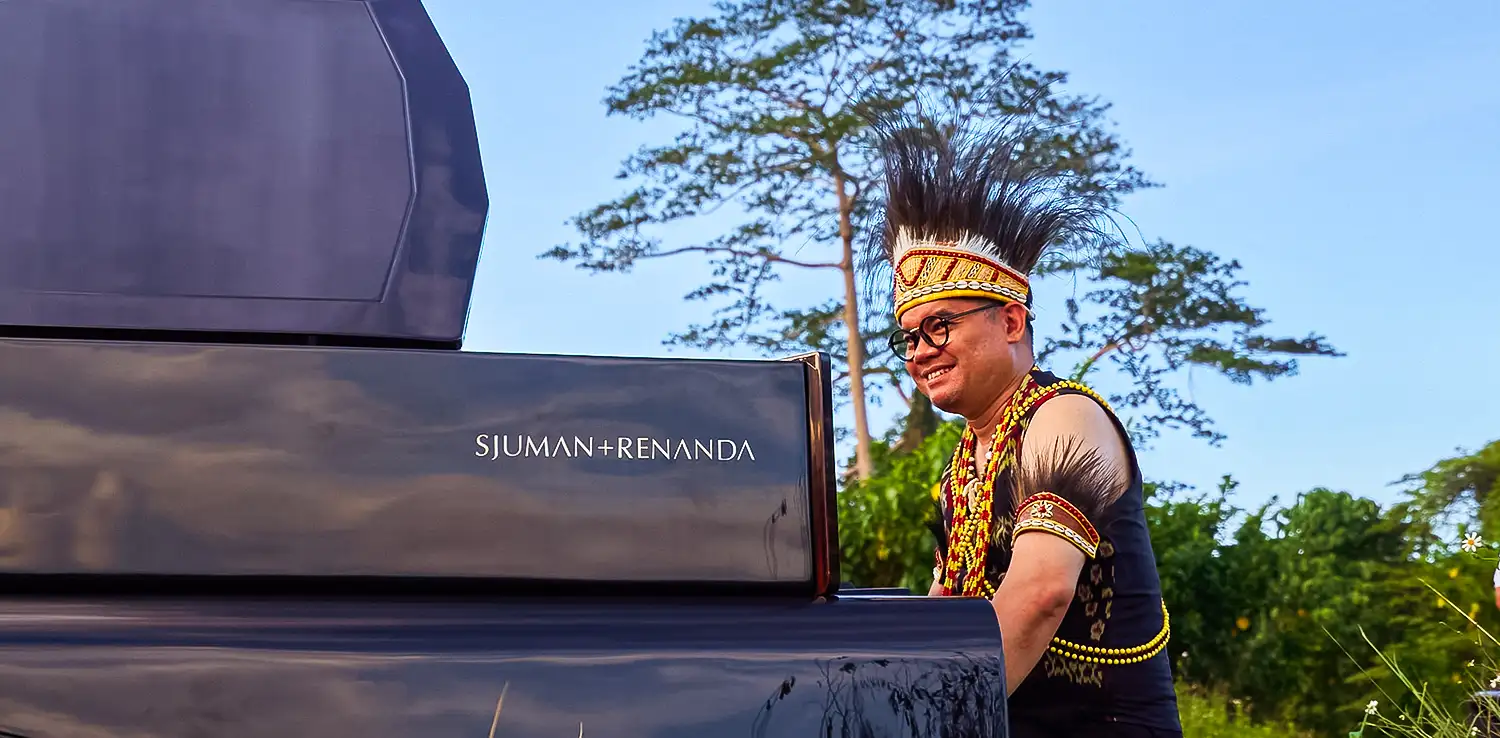
For Ananda, who has been playing the piano since he was five and held concerts in many countries, art must be manifested in concrete actions that benefit society. So, he wholly supports the Indonesian government’s effort to make culture an investment for the nation’s future.
“Law Number 5 of 2017 on the Advancement of Culture is so cool. There’s nothing like that in Spain—I live there for half a year. That law is so important. There’s an element of advancement and utilization of culture where art is transformed into other arts,” he said.
“For instance, we can see a similar case with Shakespeare’s Romeo and Juliet. In the US, there’s this modernized film version played by Leonardo DiCaprio. I think culture can live long if we adapt it to the contemporary era. I compose Rapsodia Nusantara from traditional songs from tribes across Indonesia. This way, pianists from all over the world can play those songs that I’ve adapted and developed into virtuosic piano music on sheet music, a universal language, on concerts to show their artistic skills.”
Translator: Nazalea Kusuma
The original version of this article is published in Indonesian at Green Network Asia – Indonesia.

Co-create positive impact for people and the planet.
Amidst today’s increasingly complex global challenges, equipping yourself, team, and communities with interdisciplinary and cross-sectoral insights on sustainability-related issues and sustainable development is no longer optional — it is a strategic necessity to stay ahead and stay relevant.
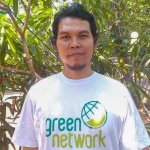
Abul Muamar
Amar is the Manager of Indonesian Digital Publications at Green Network Asia. He holds a Master’s degree in Philosophy from Universitas Gadjah Mada and a Bachelor’s degree in Communication Studies from Universitas Sumatera Utara. He has over ten years of professional experience in journalism as a reporter and editor for several national-level media companies in Indonesia. He is also a writer, editor, and translator with a particular interest in socio-economic and environmental issues.


 Embracing the Business Value of Sustainability
Embracing the Business Value of Sustainability  American Farmers Call for Government Support Amidst PFAS Contamination
American Farmers Call for Government Support Amidst PFAS Contamination  Asia Pacific’s SDG Progress Faces Major Setbacks
Asia Pacific’s SDG Progress Faces Major Setbacks  Exploring the Bidirectional Relationship Between Olympic Games and the Environment
Exploring the Bidirectional Relationship Between Olympic Games and the Environment  The Hidden Threat of Tire Pollution to Salmon Populations
The Hidden Threat of Tire Pollution to Salmon Populations 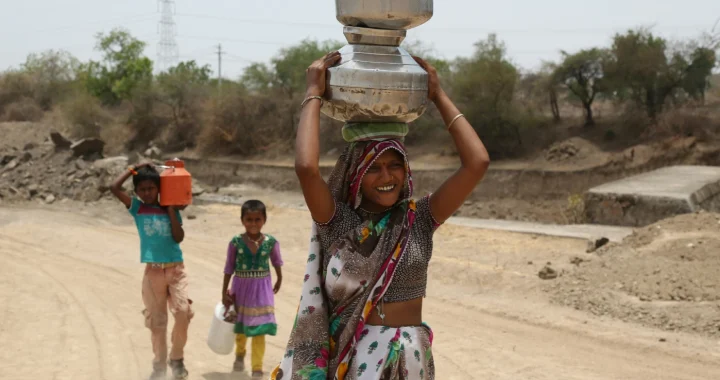 Understanding the Climate-Care Nexus
Understanding the Climate-Care Nexus